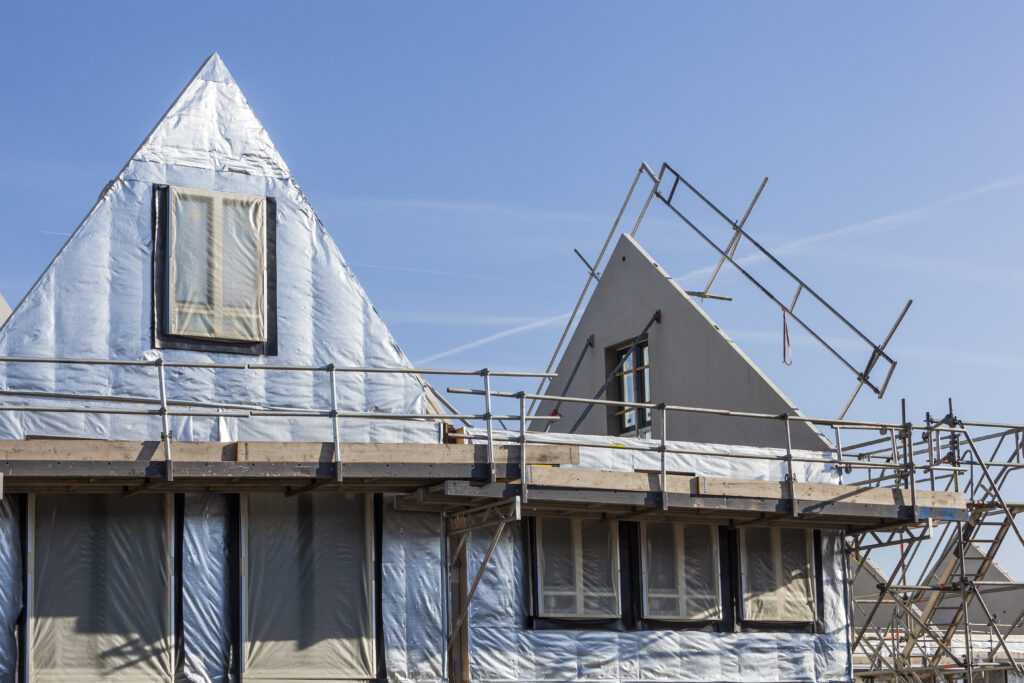The ‘Wkb is a game changer, building quality improvements need to be introduced as soon as possible’
November 16, 2022Minister Hugo de Jonge decided to postpone the Environment Act, and consequently also the Building Quality Assurance Act (Wkb), by another six months to 1 July 2023. The postponement is mainly due to concerns about the new ICT system, the Digital System Environment Act (DSO). There is lots online discussion about it. “However, in the coverage surrounding the postponement, we miss the impact it will have on the building industry,” says Ton Jans, director of KOMO and KiK. We have a few questions for him.

Ton Jans, director KiK-KOMO
The starting date of the Environment and Planning Act has now been postponed for the fifth time. What does that mean for the building sector in general?
“It seems as if the original idea for the Environment and Planning Act has faded into the background,” Ton Jans points out. “The idea behind the new Act was to create a sustainable future for the Netherlands. And this isn’t possible without a coherent set of choices regarding nitrogen, accessibility, energy, climate, housing, economy, noise, safety, etc. Very current themes, especially in the present ‘time frame’. In this context, it is in everyone’s interest that the Act is promptly introduced. I do of course also see that merging 26 laws and hundreds of regulations in a digital system is no easy task. And that there may be resistance to this change.”
" Basically, it is of course not really about us, the Wkb stands for improving the quality of building. It will be a game changer for the building sector! It's something that is very eagerly awaited and the sooner it is introduced the better! Actually, fact is, the quality is now deteriorating, after all, the competent authority is reducing its capacity and the private system is forced to be 'on hold'. "
With the postponement of the Environment and Planning Act, the Wkb will also come into force at a later date. Instrument providers, builders, quality assuring bodies, developers/specifiers and municipalities have already been busy preparing everything for years. Is it a disappointment for them, and therefore also for KOMO and KiK, that the Wkb will not come into effect on 1 January 2023?
“It is definitely a setback. Certainly also because Minister Hugo de Jonge indicated that all signals for the Wkb are on green. Speaking of KOMO, we have worked diligently in recent years to give our certificate holders a priority position within the new system. Traditionally, our quality mark has been helping builders to prove that they deliver high quality. Under the Wkb, this takes on an extra dimension because builders are given the burden of proof based on the amendments to the Civil Code that come into effect at the same time as the Wkb. For these reasons, we have linked the KOMO certificates to the KOMO-developed KiK-tool software application. This link helps the builder show his/her burden of proof and the quality assurance officer saves valuable time spent on checks at the building site.
In collaboration with the VKBN, we initiated the independent Wkb performance ladder. This is a nationally harmonised valuation system for quality assurance and instruments. At the same time, with the development of the KOMO Wkb Process Certificate with an ‘as-built’ label, we are putting the finishing touches on the regular KOMO process certificate. KOMO is also taking steps in the field of concept homes in the near future. While housing concepts were already certified on the basis of the BRL 0904 ‘Timber Frame Homes’ and the BRL 0905 ‘Building Systems for Energy-Efficient Homes and Housing Extensions’, Kiwa is now developing the KOMO-BRL 2840 for Prefab Housing Concepts with Concrete shell.

KiK has certainly not been left in obscurity in the run-up to the Wkb. In recent years, KiK has worked diligently to successfully implement the new system. We have developed the KiK instrument that was approved this year by the Building Quality Assurance Admissions Organisation (TloKB). The KOMO certificate ‘Quality Assurance for Building’ based on BRL 5019 has been drawn up. Presently there are 12 Quality Assuring Bodies licensed with KiK. Moreover, in cooperation with BRIS we developed a free software application KiK tool. The tool is used in many Wkb projects, both by quality assuring bodies and builders. We set up the KiK Training Programme in collaboration with the Wkb Campus.
As you can see, a great deal has been developed, with the associated investments. It will be a game changer for the building sector! It is something that is simply raring to go! In fact, the quality is now deteriorating, after all, the competent authority is reducing its capacity and the private system is forced to be ‘on hold’.
What now?
“I am an optimist by nature,” explains Ton Jans. “We will wholeheartedly continue our activities with conviction and enthusiasm. Everything is planned and lined up to further develop our services and to keep quality assurance affordable.
Anyway, so plenty of interesting things to do. Now to introduce the Wkb so that building sector, infrastructure and citizens can fully benefit from all the work that has been done in the context of the new system!”

